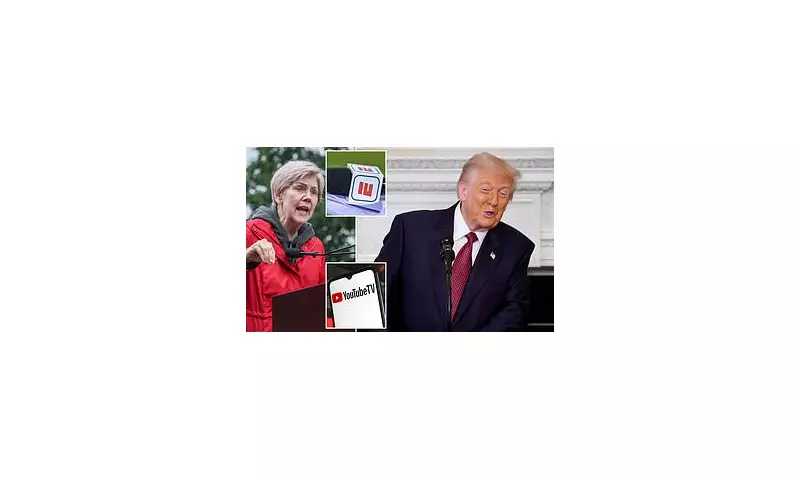
A major streaming crisis has erupted that's pitting politicians against media giants, leaving millions of American football fans in the crossfire. The sudden blackout of ESPN on YouTube TV has transformed from a corporate dispute into a full-blown political battle, with prominent figures from both sides of the aisle weighing in.
The Streaming Standoff That's Rattling Washington
What began as a routine carriage fee negotiation between Google's YouTube TV and Disney's ESPN has escalated into a remarkable political confrontation. The dispute has left subscribers without access to crucial NFL games and sports programming at the height of football season, creating widespread frustration among viewers.
Political Heavyweights Enter the Fray
Massachusetts Senator Elizabeth Warren has launched a fierce critique of both corporations, accusing them of putting profits before consumers. "When giant corporations like Google and Disney get into these fights, it's the consumers who get hurt," Warren stated, demanding immediate resolution to protect subscribers.
Meanwhile, former President Donald Trump has seized the opportunity to blast what he calls "woke corporate censorship" and "anti-American business practices." His comments have added fuel to an already blazing controversy, drawing his substantial supporter base into the debate.
What This Means for NFL Fans
The timing couldn't be worse for football enthusiasts. With the NFL season in full swing, subscribers are missing:
- Live Monday Night Football broadcasts
- Exclusive NFL analysis and commentary
- College football matchups
- Other major sporting events
The blackout affects YouTube TV's approximately 5 million subscribers, many of whom specifically chose the service for its comprehensive sports offerings.
The Broader Implications for Streaming
This dispute highlights the fragile nature of the streaming ecosystem and raises questions about:
- The power dynamics between content creators and distributors
- Consumer protection in the digital age
- The politicalization of corporate disputes
- The future of sports broadcasting rights
Industry analysts warn that this could be the first of many such conflicts as streaming services face increasing pressure to control costs while maintaining attractive channel lineups.
What Happens Next?
Both companies remain at an impasse, with no public indication of when negotiations might resume. Meanwhile, subscribers are left with difficult choices: switch to more expensive cable packages, find alternative streaming options, or simply miss out on their favourite sports programming.
The involvement of high-profile politicians adds unprecedented pressure to the situation, suggesting this corporate dispute may have lasting consequences for how streaming services operate and are regulated in the future.






